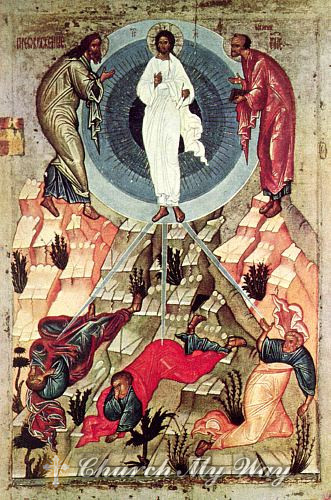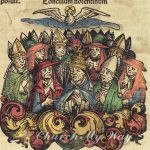The Christian View on Asceticism in the Modern World
Asceticism and monasticism are two different religious practices that are meant to help practitioners reduce the emphasis on worldly pleasures, so they can invest more time in the spiritual aspect of their lives. Asceticism and monasticism are religious practices that have been adopted by different faiths. Generally, though, asceticism is the practice of self-denial in order to achieve a spiritually higher plane. A monk is someone who secludes themselves away from society in order to fulfill religious vows. Not all monks are ascetics, but all ascetics are monks.
Christianity has a long history of asceticism or the practice of self–denial for the sake of spiritual growth. In the modern world, many Christians continue to practice asceticism as a way to grow closer to God. Asceticism is often seen as a negative practice, but Christians believe that it can be a positive force in one‘s life. Christians who practice asceticism typically do so for a period of time, after which they return to a more normal lifestyle.
Some Christians believe that asceticism is the only way to truly grow closer to God. Others believe that it is one of many possible ways to grow closer to God. Ultimately, each Christian must decide for themselves whether or not to practice asceticism.
Introduction: What is Asceticism?
Asceticism is a word that refers to the practice of self-discipline by abstaining from worldly pleasures. Ascetics are people who live austere lifestyles.
Ascetics is usually associated with the Christian, Buddhist, Hindu, and Taoist religions. They are not limited to these religions though. There are ascetics in every religion or even those that do not follow any organized religion.
Asceticism has many different meanings depending on which context it is being used in. Its original meaning was used to describe someone who practices abstinence by denying themselves worldly pleasures but now it can be seen as the act of abstaining from worldly pleasures for religious reasons or plain old discipline to improve oneself.
Virtues of Asceticism & Monastic Practice
Asceticism is the practice of abstaining from sensual pleasures, often for the purpose of pursuing spiritual goals. Monastic life is a form of asceticism in which one renounces worldly pursuits to live a strictly religious life typically in an institution under monastic rule.
The four stages of spiritual life are Purgation, Illuminative Way, Dark Night of the Soul, and Union with God. The steps in monastic living are obedience, poverty, chastity, and silence.
Encouragements and Warnings to Christian Monks and Nuns
Ever since the time of Plato, there has been a divide over the definition of happiness. One side believes that it is found in virtue and honor, while another believes that it is found in luxury and pleasure. The way to find out which side is correct is through an ascetic life.
The author encourages those who live a monastic life to stay true to their vocation and do what is right. Secondly, he warns them against the dangers of corruption.
The Relationship Between Asceticism and Monasticism in Christianity
Asceticism & Monasticism Defined
Icon of Saint Anthony the Great, the founder of Christian monasticism
The life of an ascetic is all about self-denial. Ascetics live a life of discipline and abstinence. They don’t touch anything that they think will cause them to sin. They don’t have sex, they don’t eat meat, and often don’t have any type of social interaction.
The earliest Christian ascetics were monks who left their homes to live in the desert as a way to escape from worldly temptations. In many ways, monasticism was an extension of the ancient idea that people needed to escape from civilization in order for their souls to be cleansed from sinfulness.
Christianity and Asceticism
Christian asceticism is the practice of self-denial, such as fasting, abstinence from worldly pleasures, and withdrawal from society. The term “ascetic” comes from the Greek word “askesis,” which means “exercise” or “training.” Asceticism was practiced by many early Christians as a way to purify themselves and prepare for sanctification and salvation. It is also based on what they read in the Bible.
Asceticism in Christianity is about withdrawing oneself from society and any worldly possessions to reach a place of spiritual purity. Early Christians would spend time alone in caves or other natural areas, praying regularly and reciting scripture.
The Benedictine Order’s view of Asceticism & Monasticism

The Benedictine Order is a monastic order of monks and nuns founded by Saint Benedict of Nursia.
They follow a strict set of guidelines that include prayer, work, and devotion to the community. More importantly, they do not own anything and are entirely dependent on charity from others.
Conclusion: The Christian View on Ascetiocm
Asceticism is the act of making oneself abstain from worldly pleasures. Ascetics are people who have chosen to live a life of abstinence for religious or spiritual reasons. The Christian view of asceticism is rooted in the Bible, but it can be traced back to earlier religions as well. Christians believe that by following the ascetic lifestyle they are being obedient to God and fulfilling his will for their lives. Ascetics are often seen as eccentric or extreme, but they are following their version of what Christianity said they should do in order to be holy.







